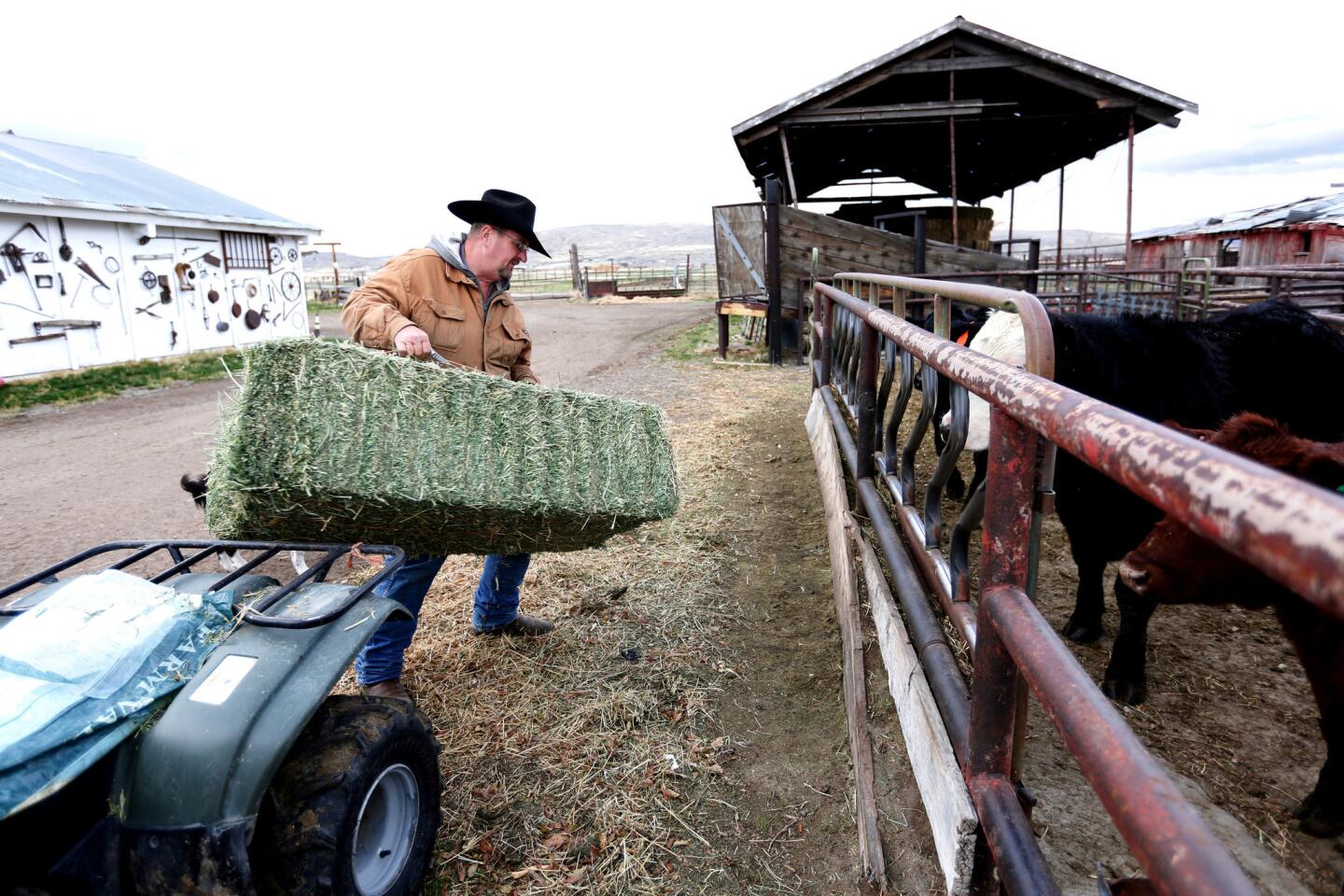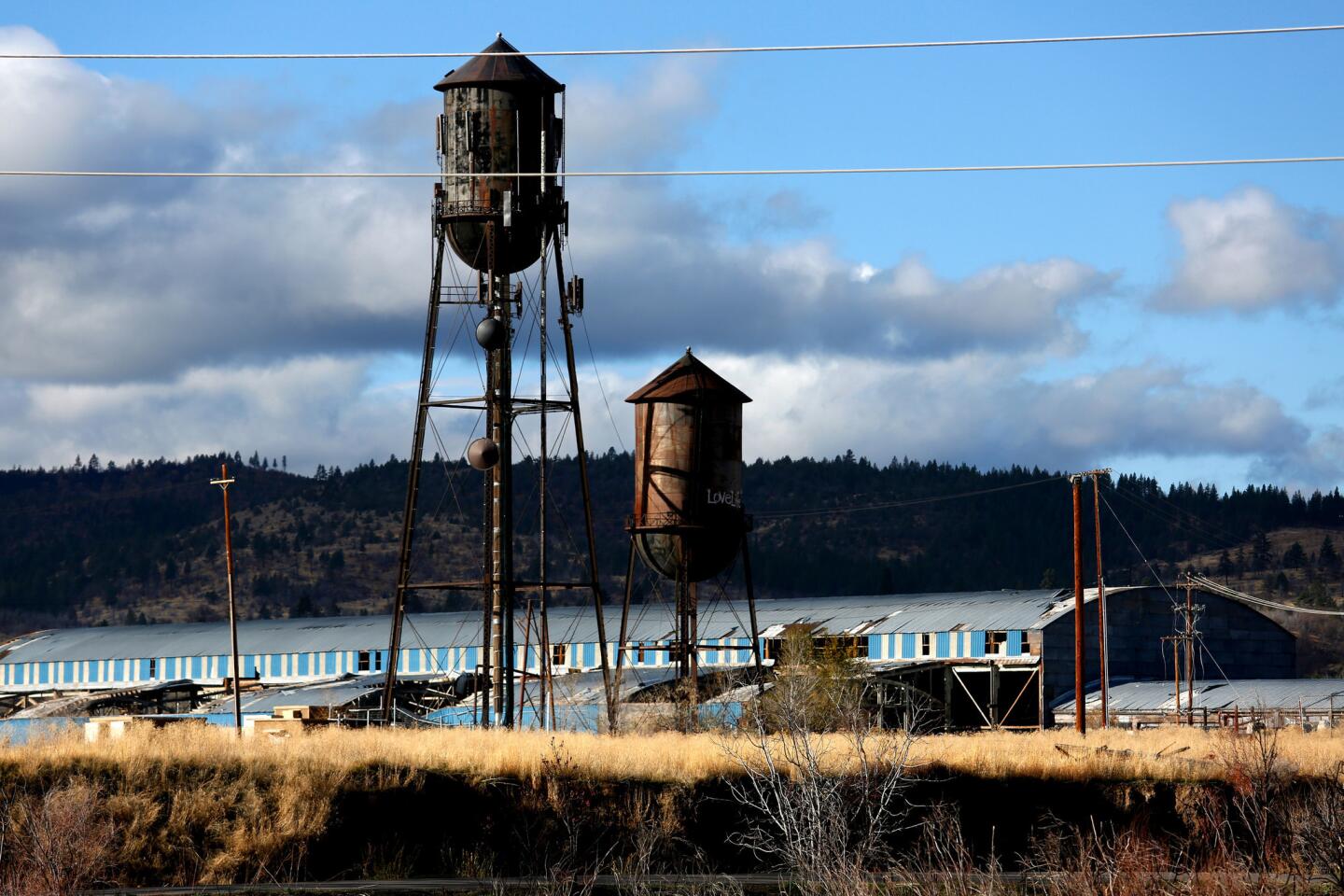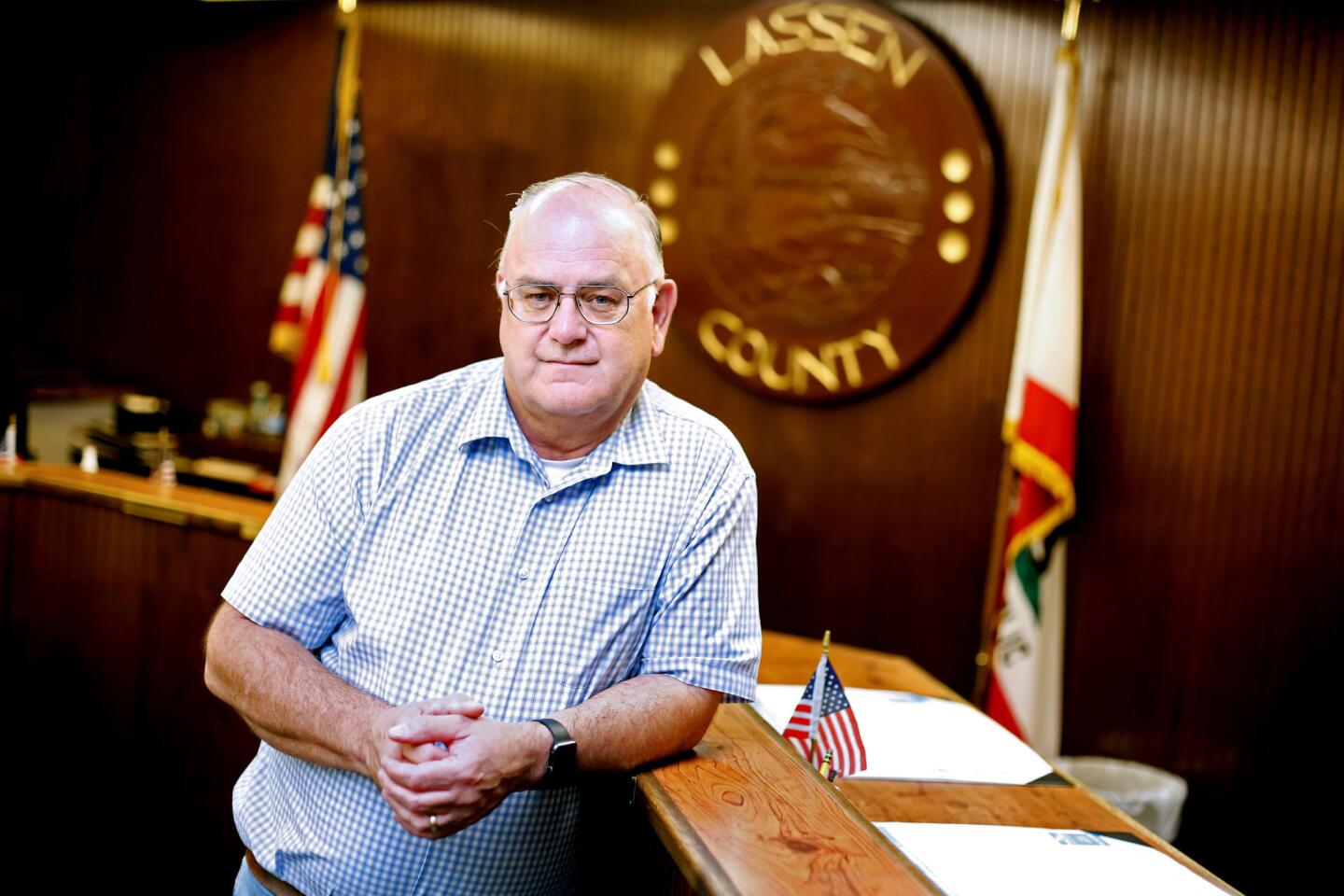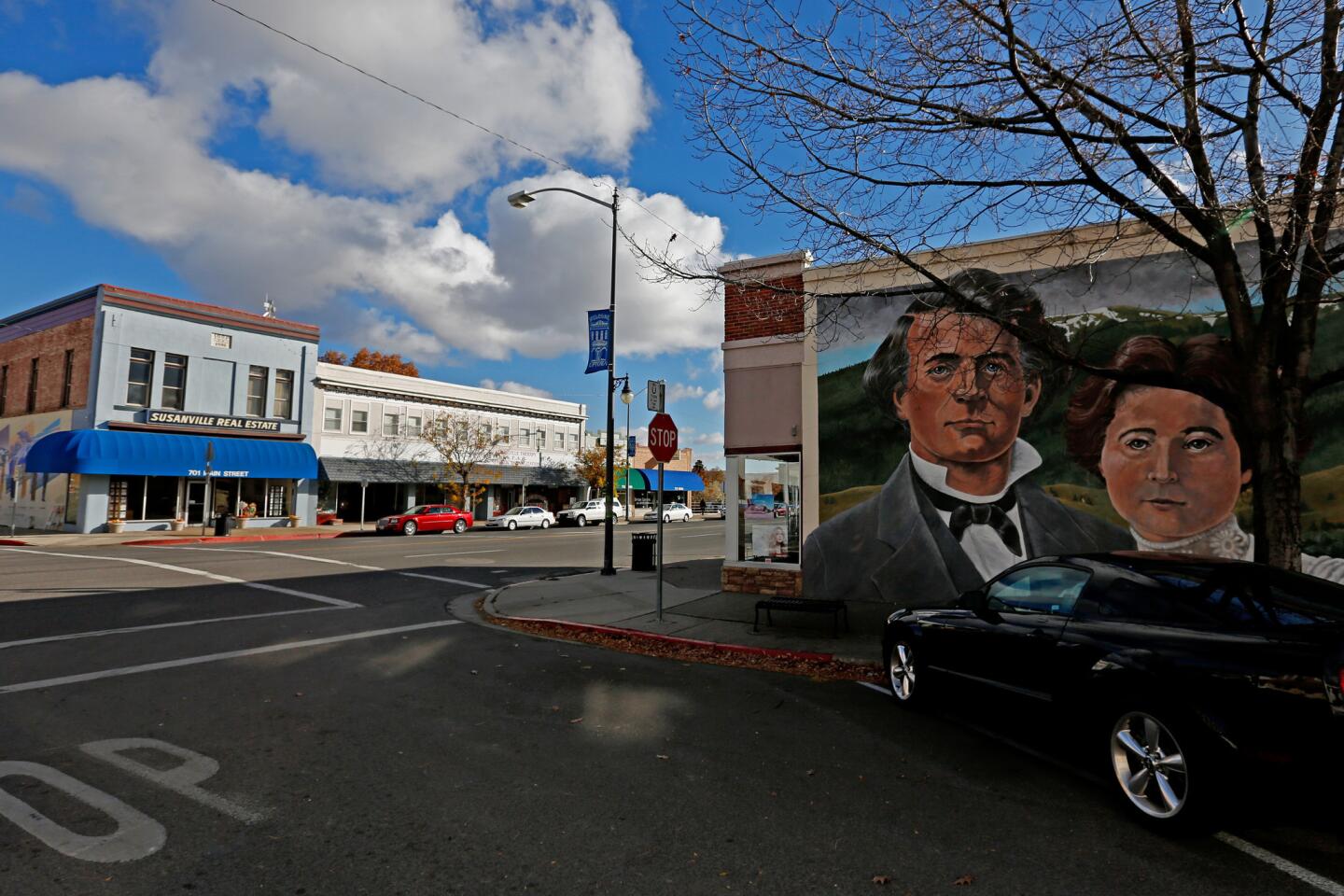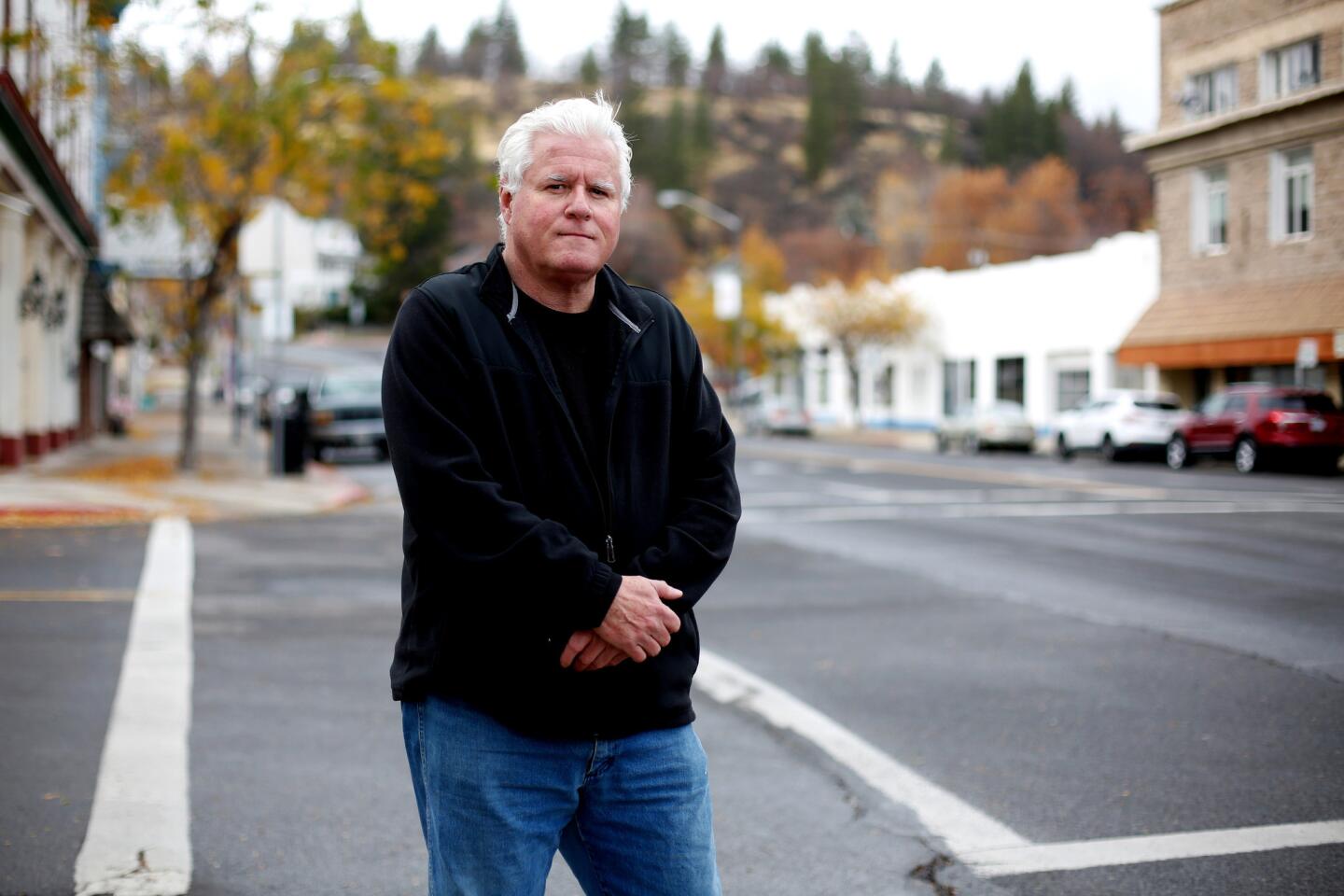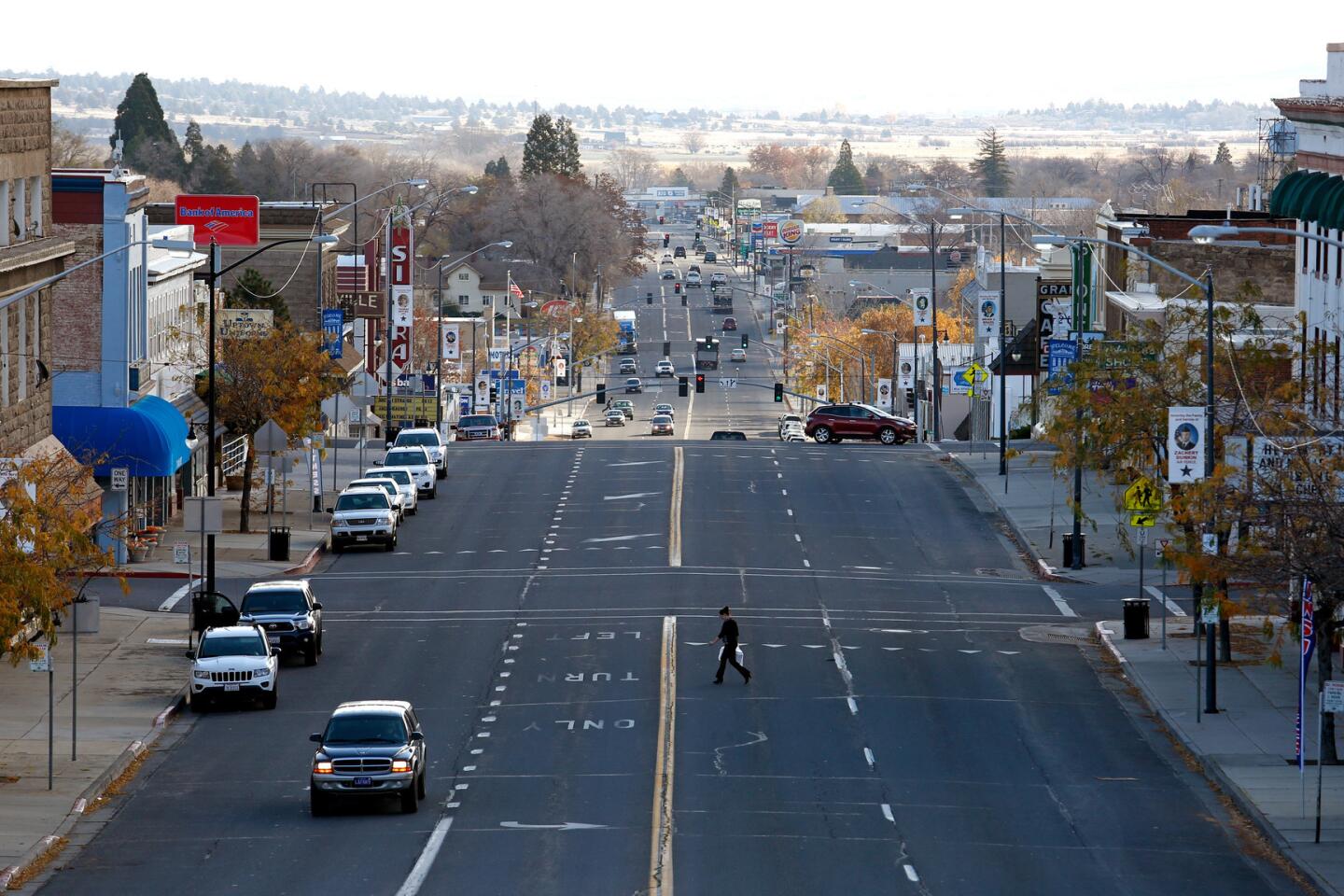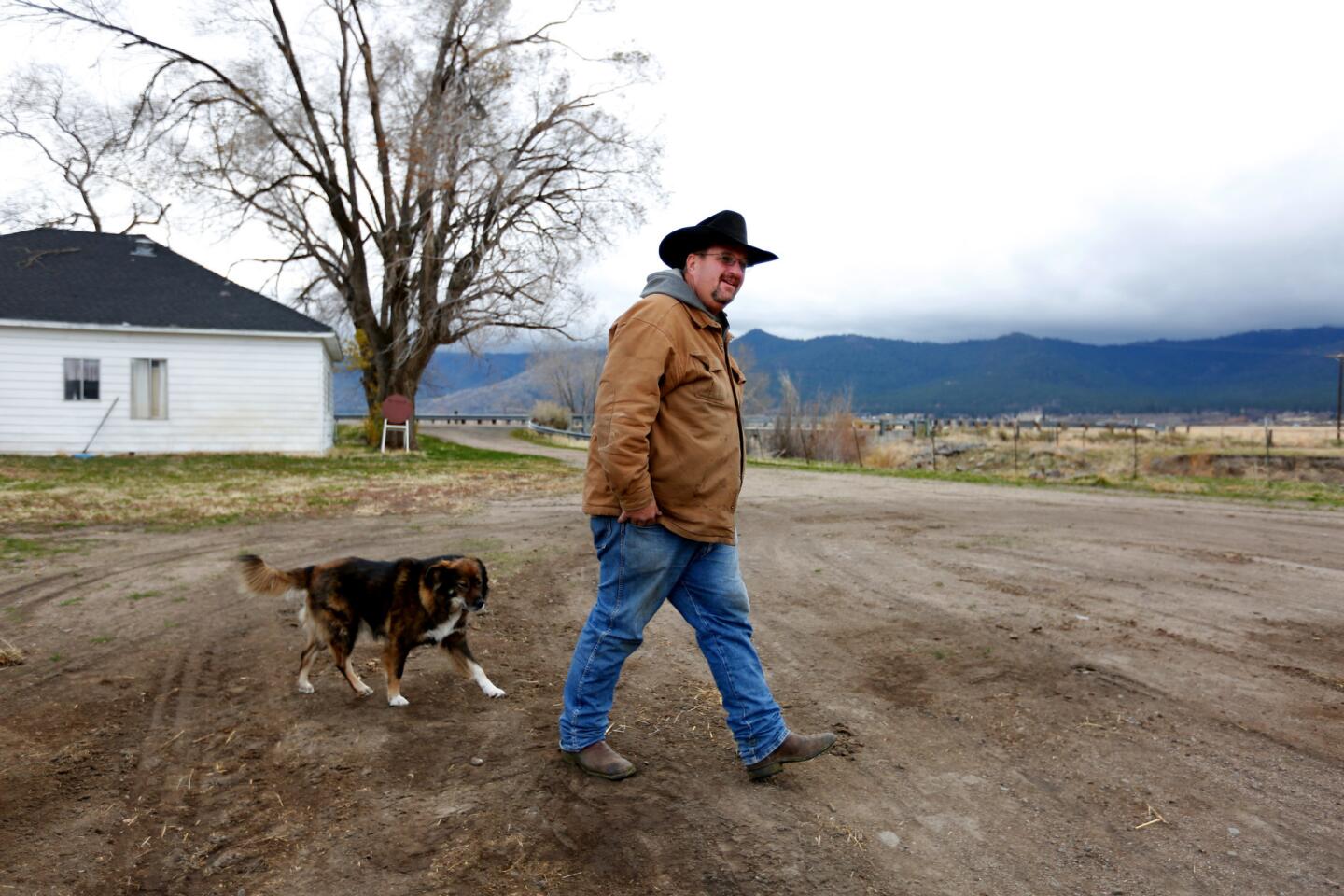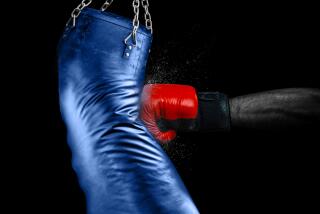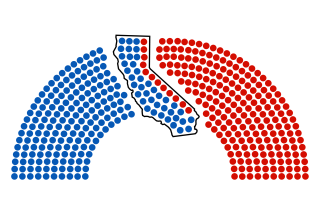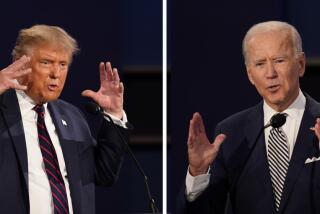In Trump they trust: Why these Californians voted red
On a cattle ranch three bridges past a giant lone poplar tree on this isolated northeastern edge of California, Jeffrey Hemphill for once feels part of something larger.
He and his Lassen County neighbors cast 73% of their ballots, the strongest vote in the state, to elect Donald Trump for president.
They voted against the rest of California on almost every other ballot issue too, rejecting increased gun regulation, a plastic bag ban, tax hikes, prison parole and the recreational use of marijuana, all seen locally as urban impositions on the rural soul.
“People still have morals and values here,” Hemphill said, walking past the side-by-side houses his grandfather and father built in the backyard that is a 400-acre pasture. It is a path of work and pride, from the discarded tractor tires he converted into watering tanks to the steer his daughter is raising for 4H.
“We’re up here out of sight and out of mind and that’s how the state treats us.”
We’re up here out of sight and out of mind and that’s how the state treats us.
— Jeffrey Hemphill, Northern California resident
For much of California, the November election marked another banner year for Democrats and many of the causes they champion.
Once solidly Republican areas like Orange County tilted to Hillary Clinton over Trump. Democrats took every county in Southern California as well as the entire coast, save for tiny Del Norte County at the very top of the state.
But Lassen and about a dozen other counties in the far northern reaches remained solidly red.
This is an area political scientist Eric McGhee at the Public Policy Institute of California calls “typical conservative,” “a touch libertarian” and “still very white.”
Lassen is 60% white, making it increasingly an outlier in a state where Latinos now outnumber whites.
McGhee said opinion surveys have found a widening ideological divide between the urban Bay Area and Los Angeles regions and these more rural pockets.
“One of the key things you are missing up there is diversity,” McGhee said. “Statewide the general movement is Democratic [but] the far north of the state is very white.”
Far Northern California is in some ways much different from the Rust Belt communities that helped Trump get elected president.
But they share strong similarities.
Blue collar jobs in the lumber industry all but disappeared under changing federal logging rules as old growth forests were timbered out, and Democrats took the blame in the eyes of some residents.
The mountains remain sparsely populated, meaning law enforcement is far away, so 2nd Amendment gun rights debates focus less on hunting and more on personal safety.
Crime is a worry, but with a regional bent city residents don’t share. Thieves in the night journeyed clear across the plateau to strip copper tubing from Hemphill’s water pumps and his first thought was to set a bear trap for them if they tried it. The high school graduation rate is high in Lassen County but residents are half as likely as other Californians to have a college degree, according to 2015 federal census estimates. Thanks to jobs at three prisons, the median wage is only slightly lower than elsewhere in the state, but the poverty rate is high, 20% by federal counts.
There is clear anger among residents when their struggle for representation is written off as something bad.
“Deplorables! What is so insulting is to be called a racist,” said Hemphill’s wife, Nancy, a civilian employee for the military.
Deplorables! What is so insulting is to be called a racist.
— Nancy Hemphill, Northern California resident
Hemphill, a rancher who sits as a Lassen County supervisor, was a Trump supporter early on, but other voters in the region say it wasn’t the candidate they supported so much as the stand he represented against something else — Clinton, the rest of California, the Republican Party itself.
“Trump’s an idiot and the alternative was worse. We had the choice between a smashed tomato and a rotten smashed tomato,” said Arlin Howard, one of three ironworkers from adjacent Butte County taking a table at the Pioneer bar for beer and steak. They were still spattered with mud from a day of irrigation work in the hayfields. They are union members, and they picked Trump.
The trio grew up “when union meant something” and logging afforded work and a sense of self-determination that offset the detachment from the other side of the Sierra Crest. “This place was loaded with mills and logging, ranch work, trucking,” said Howard, 59. “You were making hay or felling timber.”
Not so many do so now. The local Sierra Pacific sawmill closed in 2004. Its empty water tanks loom over Susanville like a grave marker.
“People here are sick and tired of having someone control their lives,” said Jim Chapman, 62, a political history buff with 40 years as a Lassen County supervisor, more time in that office than anyone else in the state. “I think people here went to the polls to vote against government.... It is a scream of ‘enough is enough.’”
It is a deeply ironic statement, because an estimated 65% of Lassen County workers are on a government payroll. Most work at one of three prisons outside Susanville, one federal, two state. The combined inmate population is half the size of the town.
It’s because of that economic tether that Chapman thinks Lassen voters in June defeated a ballot measure put before them by the county to secede from California in order to create a state in which they had a voice and secure regional representation in Congress. Right now, a single assemblyman represents all of seven counties and parts of two more.
The state of Jefferson movement — a push to pull counties in southern Oregon and Northern California into the nation’s 51st state -- has a barn-burning, hail Mary quality to it, Chapman said. Even so, 42% of Lassen voters, 3,093 county residents, voted for it. Backers want to name this state after Thomas Jefferson, who as president pushed America west.
The secession movement would require an act of Congress and consent of the California Legislature. Nevertheless, it runs deep in Northern California and once in 1941 progressed as far as seeing the Del Norte County prosecutor declare and inaugurate himself as governor of Jefferson. The decree was overwhelmed by history three days later when the Japanese attacked Pearl Harbor. Petitions to create a 51st state still circulate before county boards and state of Jefferson billboards dot the rural highways along the Sierra Crest. In the last two years, five California counties have submitted petitions to the California secretary of state declaring their independence.
“The ABC movement is strong here,” Chapman said.
Anything But California.
It’s an old thought. Downtown Susanville boasts a large mural of the founding settler who led an armed revolt against California tax collectors a century ago, in the two-day Sagebrush War.
A generation ago, the conservatives of Lassen County felt at home in the Democratic Party and helped send Jimmy Carter to the White House.
Hemphill’s father was among them. It wasn’t so much that his father stopped being a Democrat, Hemphill said, but that the party “changed on him.”
Likewise, Chapman first ran for office as a Democrat, and attended state party meetings until he said he could suffer them no more. “I was left high and dry by my party, which I didn’t want to have anything to do with anymore,” he said. The last straw came at a state convention, “being told, if you want a seat at the table, this is what you have to believe in.”
This, he said, was an “urban agenda” of gun control, abolition of the death penalty and support for gay rights and abortion.
Chapman shunned the Republican Party too and built his long political career under the banner of “Decline to State.”
There no longer is a Democratic Party office in Lassen County. Past county party leaders declined to be interviewed.
The county’s Republican chairman is only slightly more supportive of his state party.
“I am more amused by the state party than I am engaged,” said Christopher Cole, 58, a Southern California transplant from Palm Springs who moved north to manage a hotel and raise his son. In addition to serving as county party chairman, he works as the news manager for a conservative radio station.
Dressed for a Saturday morning interview at the local Safeway in birch tree camouflage, Cole dismissed those in control at state Republican gatherings as “brie and wine sippers.”
He sits tolerantly through their lectures on how to register new members. His is one of only two counties in the state where Republican registration is growing. Cole keeps his eye fixed on local issues where he can be effective, opting against engagement in state races where the county is ignored.
“It’s a political civil war,” he said, “and we’ve headed for the hills.”
To read the article in Spanish, click here
ALSO
Trump pushes back against reports of transition turmoil, but there’s little indication of progress
What to make of Trump one week in: He’s unpredictable and keeping his options open
White nationalists’ ‘man in the White House’? Bannon appointment provokes angry rebukes
More to Read
Start your day right
Sign up for Essential California for news, features and recommendations from the L.A. Times and beyond in your inbox six days a week.
You may occasionally receive promotional content from the Los Angeles Times.
